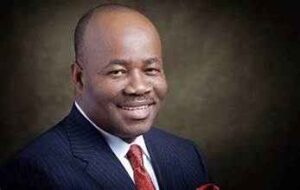The Socio-Economic Rights and Accountability Project (SERAP) has filed a lawsuit against the leadership of the National Assembly, specifically targeting what it refers to as the unjustified running costs allocated to lawmakers.
The suit includes Senate President Godswill Akpabio and House of Representatives Speaker Tajudeen Abbas as co-defendants. SERAP alleges that both officials have failed to eliminate what it describes as the unlawful practice of determining their own allowances and running costs, alongside a lack of transparency regarding the monthly expenses allocated to members.
In an announcement, SERAP’s Deputy Director, Kolawole Oluwadare, revealed that the suit was filed at the Federal High Court in Abuja on the preceding Friday.
This legal action was prompted by former President Olusegun Obasanjo’s recent claim that lawmakers are setting their own salaries and allowances in defiance of the guidelines established by the Revenue Mobilisation Fiscal Allocation Commission (RMAFC).

The organization is requesting a mandamus order to compel Akpabio and Abbas to put an end to the alleged practice of the National Assembly fixing its own remuneration and allowances, which are labeled as “running costs.”
Additionally, SERAP seeks a judicial order that would require both leaders to disclose the precise amounts being paid monthly to lawmakers for these running costs, along with detailed spending reports.
Furthermore, the suit calls for an order to stop the purported practice of depositing running costs into the personal bank accounts of lawmakers. Oluwadare emphasized that “the provisions of paragraph N, section 32(d) of the Third Schedule to the Nigerian Constitution 1999 [as amended] clearly prohibit the National Assembly from determining its own salaries, allowances, and running costs.”
He also highlighted that the alleged practice of channeling running costs into lawmakers’ personal accounts constitutes a serious violation of Rule 713 of the Federal Government Financial Regulations, which states that “public money shall not be paid into a private bank account.”




